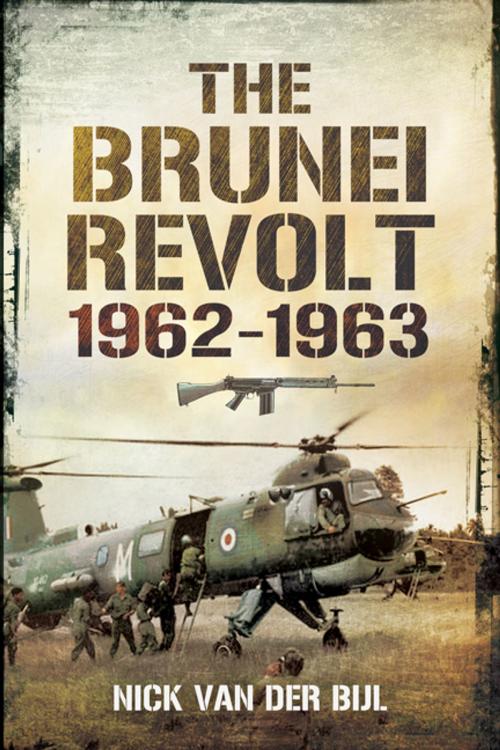| Author: | Nicholas Van Der Bijl | ISBN: | 9781783378432 |
| Publisher: | Pen and Sword | Publication: | October 24, 2012 |
| Imprint: | Pen and Sword | Language: | English |
| Author: | Nicholas Van Der Bijl |
| ISBN: | 9781783378432 |
| Publisher: | Pen and Sword |
| Publication: | October 24, 2012 |
| Imprint: | Pen and Sword |
| Language: | English |
In December 1962, nationalists in Brunei, the hugely wealthy small kingdom on the North Coast of Borneo, formed the Army of North Kalimantan (TNKU) and, demanding greater democracy, engineered a rebellion against the Sultan and seized a large number of hostages. Perceived to be an attempt by communists to destabilize the Sultanate and seize power, within twelve hours of its outbreak, British forces were dispatched by ship and aircraft from Singapore to restore order, the first unit to arrive being 1/2nd Gurkhas, who entered the capital. Within the week, the 1 Queens Own Highlanders had recaptured the strategically important oil fields and occupied Seria, 42 Commando, Royal Marines attacked Limbang and 1 Green Jackets landed in west Brunei. The next six months were spent rounding up TNKU and, since there were major concerns that Indonesia could be behind the Revolt, the charismatic Major General Walter Walker, then commanding 17th Gurkha Division, was sent to Brunei to command operations. By mid-May 1963, the surviving TNKU had been captured. While rapidly suppressed, the Revolt was the catalyst for the three year Confrontation with Indonesia 1963-66.
In December 1962, nationalists in Brunei, the hugely wealthy small kingdom on the North Coast of Borneo, formed the Army of North Kalimantan (TNKU) and, demanding greater democracy, engineered a rebellion against the Sultan and seized a large number of hostages. Perceived to be an attempt by communists to destabilize the Sultanate and seize power, within twelve hours of its outbreak, British forces were dispatched by ship and aircraft from Singapore to restore order, the first unit to arrive being 1/2nd Gurkhas, who entered the capital. Within the week, the 1 Queens Own Highlanders had recaptured the strategically important oil fields and occupied Seria, 42 Commando, Royal Marines attacked Limbang and 1 Green Jackets landed in west Brunei. The next six months were spent rounding up TNKU and, since there were major concerns that Indonesia could be behind the Revolt, the charismatic Major General Walter Walker, then commanding 17th Gurkha Division, was sent to Brunei to command operations. By mid-May 1963, the surviving TNKU had been captured. While rapidly suppressed, the Revolt was the catalyst for the three year Confrontation with Indonesia 1963-66.















